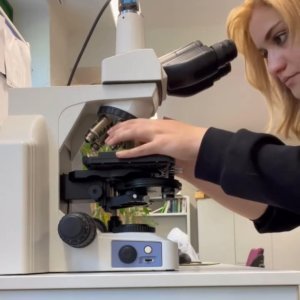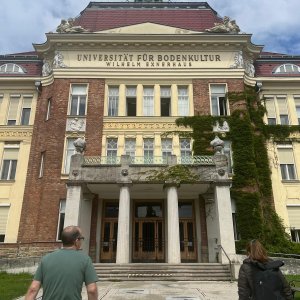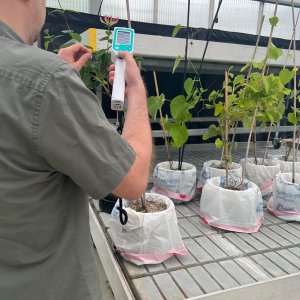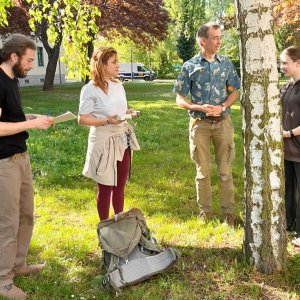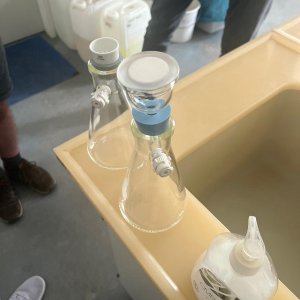An international graduate academy for the European Green Deal
The four Universities of Applied Sciences (UAS) in Saxony-Anhalt – Anhalt, Harz, Merseburg, and Magdeburg-Stendal – are collaborating through the InterGrad-EGD project to establish a shared graduate academy centred on the European Green Deal. Twenty-two doctoral researchers will receive tailored supervision over three years, with each candidate guided by both UAS professors and international academics from European partner institutions.
The structured qualification programme integrates specialised skills workshops with European research excursions and thematic camps addressing key priorities of the Green Deal. These initiatives pursue three core objectives: targeted support for young researchers, the development of sustainable European research collaborations, and the enhancement of internationally visible research outputs.
By combining excellence in academic supervision, international collaboration, and practice-oriented research, InterGrad-EGD not only enhances the participating universities but also actively contributes to achieving the European Green Deal’s sustainability targets. The project thus delivers dual benefits: it creates optimal conditions for early-career researchers while fostering regionally rooted, highly skilled specialists, ensuring the acquired expertise generates tangible impacts both locally and across Europe.
Research work in the Engineering Ecology Working Group: The role of urban plants in air pollution control in Magdeburg and Vienna
In the planned doctoral thesis of the Engineering Ecology working group, research will be conducted into how urban plants can contribute to reducing air pollutants in Magdeburg and Vienna. The focus is on which plant species (trees, shrubs) effectively absorb pollutants such as particulate matter, nitrogen oxides, ozone, carbon dioxide and sulphates while also being resistant to pollutant stress. Both environmental factors (such as temperature, humidity and location) and species-specific characteristics – in particular physiological and biochemical properties such as the function of stomata and the Air Pollution Tolerance Index (APTI) – will be analysed. Particular attention will be paid to plant species that occur at both locations in order to compare their suitability for air pollution control.
Methodologically, stomatal conductance, chlorophyll content, water content, pH value, ascorbic acid and dust deposition on leaves are measured. In addition, the APTI value is used to determine the pollutant tolerance of the species. The samples are taken at locations with varying levels of air pollution and in summer. This work is intended to provide an important basis for selecting plant species specifically for sustainable urban air pollution control and greening concepts in European cities and integrating them into planning.
Intergrad EGD | Project impressions
Dieses Standard-Template (view.htt) bietet keine Lightbox.
Um eine funktionierende Lightbox zu erhalten, müssen Sie ein Lightbox-Skript auswählen. Gehen Sie ins:
FolderGallery Backend ➔ Allgemeine Einstellungen ➔ Wählen Sie Ihre bevorzugte Lightbox
International Graduate Academy on European Green Deal Issues (InterGrad –EGD)
Internationale Graduiertenakademie zu Themen des European Green Deal (InterGrad –EGD)
Duration
01.01.2024 - 31.12.2027
Funding Programme
Sachsen-Anhalt SCIENCE: Equality, Qualifications, and Early-Career Support from the European Social Fund Plus (ESF+)
Fund
Total: 1.349.552,40 €
ESF+ Funding Amount (60%): 809.731,25 €
Saxony Anhalt Funding Amount (40%): 539.821,15 €
